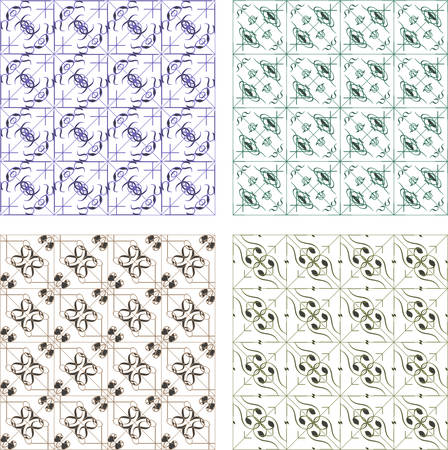Introduction to Feng Shui and British Sleeping Habits
Feng Shui, the ancient Chinese art of harmonising one’s environment, offers a wealth of guidance for creating restful and balanced spaces. In the context of British lifestyles, where home layouts, sleeping routines, and cultural preferences often differ from their East Asian counterparts, integrating Feng Shui principles requires both sensitivity and adaptation. British bedrooms are typically influenced by architectural features such as bay windows, fireplaces, and period details—elements that shape the placement of beds and other furnishings. Moreover, the UK’s climate, with its long winter nights and variable daylight hours, impacts sleeping patterns and bedroom design choices. By exploring the core tenets of Feng Shui—such as optimal bed positioning, clutter reduction, and the use of calming colours—this article will show how these principles can be thoughtfully combined with everyday British habits to foster better sleep quality and a sense of wellbeing. Whether you live in a Victorian terrace or a modern flat, understanding how Feng Shui can complement local traditions is key to transforming your bedroom into a sanctuary tailored to the unique rhythms of life in the UK.
2. Choosing the Right Bed Type for UK Homes
When integrating Feng Shui principles into a British home, selecting the appropriate bed type is crucial for cultivating positive energy and ensuring restful sleep. The British market offers a variety of bed designs, each with distinctive features that can impact Chi (energy flow) in unique ways. Analysing popular choices—such as divan, ottoman, and sleigh beds—through the lens of Feng Shui allows homeowners to make informed decisions that harmonise both style and wellbeing.
Divan Beds: Space-Saving Practicality vs Energy Flow
Divan beds are widely embraced in the UK due to their compact structure and built-in storage options. While convenient for smaller bedrooms, Feng Shui cautions against clutter beneath the bed, as it can obstruct energy circulation. If you opt for a divan, ensure the storage is kept tidy and free from unnecessary items to maintain a clear flow of Chi.
Ottoman Beds: Versatility and Hidden Storage
Ottoman beds offer generous under-bed storage accessed by lifting the mattress frame. From a Feng Shui perspective, these beds may inadvertently disrupt energy if used to store rarely-used or personal belongings. For optimal harmony, reserve this space for bedding or soft items only, avoiding sharp objects or heavy clutter.
Sleigh Beds: Aesthetic Appeal Meets Stability
Sleigh beds add a touch of classic elegance to British bedrooms with their distinctive curved headboards and footboards. In Feng Shui, sturdy headboards are favourable as they provide support and security during rest. However, overly ornate or high footboards may impede energy movement. Choose sleigh beds with moderate curves and ensure the bed isn’t positioned directly in line with the bedroom door.
Comparison Table: British Bed Types & Feng Shui Considerations
| Bed Type | Key Features | Feng Shui Pros | Feng Shui Cons |
|---|---|---|---|
| Divan | Compact, storage drawers | Space efficient, supports headboard attachment | Risk of blocked energy if cluttered underneath |
| Ottoman | Lifting base, large hidden storage | Keeps room tidy if used wisely | Poor energy flow if filled with unused items |
| Sleigh | Curved head/footboard, solid frame | Supportive headboard enhances security | High footboard may restrict Chi movement |
Selecting the Ideal Frame for Positive Chi
The ideal bed for your UK home should balance practicality with positive energy flow. Opt for frames with supportive headboards made from natural materials like wood, as these foster grounding and calmness. Avoid metal frames where possible; they may disrupt magnetic fields according to some Feng Shui traditions. Ultimately, thoughtful selection based on both function and energetic harmony will help create a nurturing sanctuary tailored to modern British lifestyles.

3. Ideal Bedroom Placement and Orientation
When adapting Feng Shui principles to British homes, it’s essential to consider the unique characteristics of local architecture—think Victorian terraces, semi-detached houses, or compact city flats. The position and orientation of your bed play a pivotal role in fostering restful sleep and positive energy flow. According to Feng Shui, the “command position” is ideal: place your bed so that you can see the bedroom door while not being directly in line with it. For many British bedrooms, this means situating the bed diagonally from the entrance, which often aligns naturally with alcoves or chimney breasts present in older properties.
Where possible, ensure your headboard rests against a solid wall for support and stability—an important aspect when many UK homes feature bay windows or multiple doors. Avoid placing the bed under a window, as this may disrupt energy flow due to draughts or external noise common in urban environments. Additionally, do not align the foot of your bed directly with the door; this is known as the “coffin position” in Feng Shui and is believed to drain personal vitality.
If your room layout restricts options—for example, in smaller London flats where space is limited—try using screens or tall plants to symbolically ‘shield’ the bed from direct door alignment. Ultimately, thoughtful placement within these architectural constraints helps harmonise traditional Feng Shui wisdom with practical British living spaces.
4. Mattress and Bedding Materials: Comfort Meets Chi
In the context of British lifestyles, the selection of mattress and bedding materials is both a matter of comfort and a key element in supporting positive Feng Shui energy—or chi—within the bedroom. Traditionally, British households have favoured natural fibres such as wool and cotton, which not only regulate temperature but also align with Feng Shui principles that value natural, breathable materials for their grounding properties.
Traditional vs Modern Bedding Preferences
The table below contrasts traditional and modern British bedding preferences and evaluates their impact on both comfort and Feng Shui energy balance:
| Bedding Material | Traditional Preference | Modern Trends | Feng Shui Perspective |
|---|---|---|---|
| Mattresses | Pocket sprung, wool-filled | Memory foam, hybrid designs | Natural fillings encourage good chi flow; synthetic foams may block energy if overly dense or chemical-laden |
| Duvets | Feather/down or pure wool | Microfibre, hypoallergenic synthetics | Natural duvets support restful sleep and healthy energy; artificial options can be used if regularly aired out to prevent stagnant chi |
| Pillows | Duck/goose feather or wool-filled | Memory foam, latex, anti-allergy fills | Pillows should support neck alignment without being too firm; natural materials are preferred for harmonious energy, but modern hypoallergenic pillows suit those with sensitivities if kept clean and fresh |
The Importance of Breathability and Cleanliness
A key aspect of both comfort and Feng Shui is breathability. Materials like cotton and wool allow air circulation, helping to dissipate negative energy and moisture. In contrast, non-breathable synthetics can trap heat and create stagnant pockets of chi. Regardless of material choice, regular airing of mattresses, duvets, and pillows is essential to maintain freshness—an important principle in Feng Shui for preventing the build-up of stale energy.
Balancing Modern Needs with Energy Flow
Modern innovations such as memory foam offer tailored support for physical health but may lack the energetic vibrancy found in traditional natural fillings. To harmonise these benefits, consider hybrid mattresses that combine natural fibres with ergonomic technology. For bedding, opt for covers made from organic cotton or linen, which are widely available in the UK market and complement both contemporary style and Feng Shui ideals.
Conclusion: Personal Comfort Anchored by Positive Chi
Your choice of mattress and bedding should marry personal comfort with the flow of chi in your bedroom. By favouring natural materials where possible and maintaining cleanliness, you support both restful sleep and a balanced living environment—key aspects of British well-being enhanced through thoughtful Feng Shui application.
5. Bedding Colours and Patterns for Positive Energy
Choosing the right bedding colours and patterns is a crucial aspect of Feng Shui, as it can significantly influence the atmosphere of your bedroom and, consequently, your well-being. For British lifestyles, where comfort meets understated elegance, its important to blend traditional Feng Shui principles with contemporary UK decor trends.
Feng Shui-Approved Colour Palettes
In Feng Shui, colours are more than aesthetic choices—they represent different energies (known as the five elements: wood, fire, earth, metal, water). For bedrooms, soothing tones such as soft blues, gentle greens, and warm neutrals (like beige or taupe) are recommended to encourage calmness and relaxation. These shades are also popular in British interiors for their timeless appeal and ability to create a restful sanctuary.
Adapting to British Decor Trends
Modern British homes often favour a muted palette, incorporating pastels and earthy tones that harmonise with natural light. Pale blush pinks, sage greens, and powder blues not only align with current UK home decor trends but also promote positive energy flow according to Feng Shui. Avoid overly vibrant or aggressive colours like bright reds or neons on bedding, as these can disrupt sleep and create an overstimulating environment.
The Psychological Impact of Colour
Colour psychology also plays a pivotal role in UK interiors. Soft greys and off-whites evoke tranquillity and sophistication—ideal for creating a serene bedroom atmosphere. Greens and blues are known to reduce anxiety and foster feelings of stability. Integrating these hues into your bedding ensures your space remains both fashionable and conducive to restorative rest.
Patterns That Complement Energy Flow
When it comes to patterns, subtlety is key. Opt for simple geometric designs or delicate florals—classic motifs in many British homes—that do not overwhelm the senses. According to Feng Shui, avoid chaotic or overly busy patterns that might disturb the room’s energetic balance. Stripes or checks in muted tones can add interest without compromising harmony.
By thoughtfully selecting bedding colours and patterns that resonate with both Feng Shui principles and British design sensibilities, you foster a bedroom environment rich in positive energy—a perfect retreat from the bustle of daily life.
6. Practical Challenges: Small Spaces and Shared Living
British homes often face unique spatial constraints, whether it’s a compact Victorian terrace, a modern flat in the city, or shared accommodation among students and young professionals. These realities can make implementing traditional Feng Shui principles seem daunting. However, with thoughtful adaptation, even limited spaces can benefit from balanced energy and restful design without sacrificing personal style.
Maximising Space in Smaller Bedrooms
Space-saving solutions are crucial for British bedrooms, which are frequently smaller than their international counterparts. Opt for beds with built-in storage to keep clutter at bay—an essential step for good Feng Shui, as mess disrupts the flow of positive qi (energy). Choose bedding in lighter shades to create an airy atmosphere and visually expand the room. Avoid positioning the bed directly under windows or in line with the door, but if space restricts this, use subtle room dividers like fabric screens or open shelving to symbolically ‘shield’ the bed without blocking light or airflow.
Adapting Feng Shui for Multi-Use Spaces
Many British households require bedrooms to double as home offices or living spaces. To maintain harmonious energy, establish clear zones within the room using rugs, lighting, or even differing wall colours. Keep workspaces tidy and separate from sleeping areas whenever possible; folding desks or movable partitions can help with this division. At night, cover work materials to allow your mind and bedroom energy to rest undisturbed—a simple yet effective Feng Shui practice.
Shared Flats: Balancing Individual Needs
In shared flats, privacy and personalisation become key considerations. Use soft furnishings such as curtains around your bed or portable screens to carve out a private sanctuary within communal rooms. Encourage flatmates to agree on neutral bedding tones and subtle décor themes that support collective calmness while allowing individual touches through cushions or throws. Respecting each occupant’s boundaries supports both interpersonal harmony and positive energy flow throughout the flat.
Style Without Sacrifice
Embracing practical Feng Shui need not mean bland design choices. Select high-quality natural fabrics—like cotton or linen—for bedding to enhance comfort and align with both Feng Shui recommendations and British sensibilities for understated elegance. Consider dual-purpose furniture in classic British styles that reflect your personality while addressing functional needs. The key is intentionality: every choice should serve both practical demands and the pursuit of balance and wellbeing.
Summary
By creatively addressing common British living challenges—small rooms, multi-functional spaces, and shared environments—it’s entirely possible to apply Feng Shui principles without losing sight of style or practicality. With careful planning and a willingness to adapt tradition to contemporary life, you can cultivate restful, energising spaces suited perfectly to the realities of British lifestyles.
7. Maintaining a Harmonious Sleep Environment
Establishing a restful bedroom goes beyond choosing the right bed and bedding—ongoing maintenance is essential to preserve harmony and promote well-being. For British lifestyles, this means balancing clutter management, cleaning routines, and adapting to the UK’s ever-changing seasons.
Clutter Control: The Foundation of Calm
In Feng Shui, clutter is thought to stagnate energy, leading to restlessness and stress. In the British context, where homes can often be compact or multi-purpose, it’s vital to keep bedside tables, wardrobes, and under-bed areas free from unnecessary items. Consider regular decluttering sessions—donate unused clothes or books and opt for storage solutions that suit your interior style, such as woven baskets or classic ottomans.
Regular Cleaning: Creating Freshness Year-Round
The UK climate brings damp winters and pollen-heavy springs, both of which can impact indoor air quality. Schedule weekly dusting and hoovering to remove allergens and maintain a fresh space. Launder bedding every one to two weeks using gentle detergents; this not only extends linen life but also supports Feng Shui’s focus on cleanliness. Don’t forget to rotate and air out mattresses seasonally, preventing mould or mustiness in humid conditions.
Adapting to Seasonal Changes
With Britain’s pronounced seasonal shifts, your bedroom environment should adapt accordingly. Use heavier duvets and thermal curtains during colder months for warmth and cosiness—both valued in Feng Shui for supporting restorative sleep. In summer, switch to lighter bedding made from breathable cotton or linen. Consider adding an air purifier or dehumidifier during high humidity periods common in parts of the UK.
Small Habits, Big Impact
Simple daily habits—such as making your bed each morning or opening windows briefly to refresh the air—can cumulatively foster a tranquil atmosphere. Incorporating natural elements like potted plants (think English ivy or lavender) not only reflects Feng Shui principles but also resonates with British garden culture.
Consistency Is Key
A harmonious sleep environment is sustained through consistent effort rather than occasional overhauls. By integrating these practical tips into your routine, you ensure your bedroom remains a sanctuary—supportive of both Feng Shui ideals and the unique rhythms of British living.


